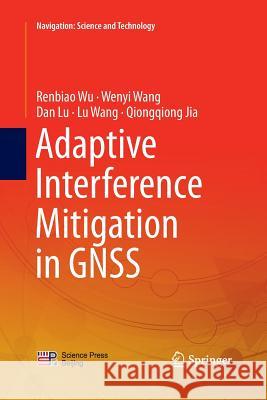Adaptive Interference Mitigation in Gnss » książka
topmenu
Adaptive Interference Mitigation in Gnss
ISBN-13: 9789811354304 / Angielski / Miękka / 2019 / 274 str.
Kategorie:
Kategorie BISAC:
Wydawca:
Springer
Seria wydawnicza:
Język:
Angielski
ISBN-13:
9789811354304
Rok wydania:
2019
Wydanie:
Softcover Repri
Ilość stron:
274
Waga:
0.45 kg
Wymiary:
23.5 x 15.49 x 1.57
Oprawa:
Miękka
Wolumenów:
01











